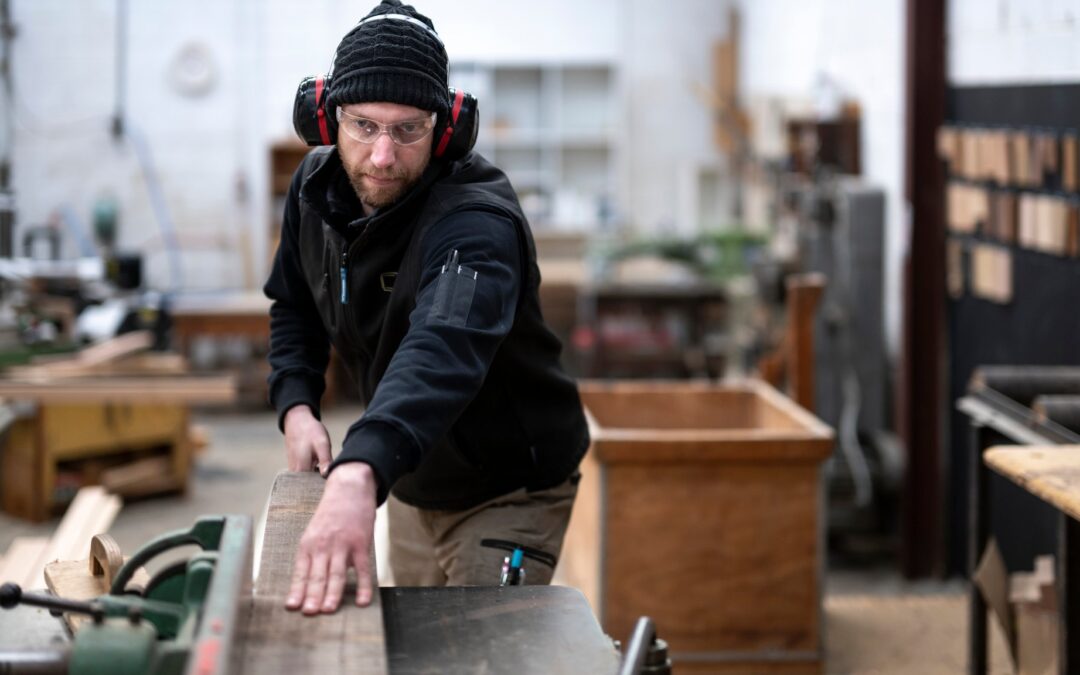What is Timber Machining?
Whether you’re working on a residential project, a commercial build, or a DIY home improvement, Custom Cabinets Tasmania’s talented machinists deliver a comprehensive range of reliable and precise machining services tailored to meet your unique needs.
To shed light on the intricacies of timber machining, we sat down with Mark and Aaron to gain insights from their expertise.
How would you describe Timber Machining to someone who isn't familiar with the practice?
Timber machining is the process of shaping, cutting, and finishing wood using specialised tools and machines. It involves transforming raw timber into precisely measured components, such as skirting, architrave, picture frames, dado rails, decorative panels, mouldings, and custom shapes, which can then be used in furniture, cabinetry, or construction projects.
What is a profile? Are they standard or can they be created?
In timber machining, a profile refers to the specific shape or contour that is cut into the edge or surface of a piece of wood. Profiles are often used in mouldings, trims, and decorative elements to add detail and character to woodwork.
Profiles can be standard or custom-created:
- Standard Profiles: These are common shapes that are widely used in various applications, such as skirting, architraves, and door casings. They are typically available in predefined designs and can be easily replicated.
- Custom Profiles: If a unique or specific design is needed, custom profiles can be created to match the exact requirements of a project. This involves designing a new cutter or modifying existing tools to produce the desired shape.
Custom profiles are particularly useful in bespoke cabinetry, restoration work, or when aiming to achieve a specific architectural style.
Who supplies the timber?
Timber can either be supplied by you or sourced from our network of reputable suppliers.
What is the largest piece of timber you can machine?
At Custom Cabinets Tasmania we can:
- Buzz up to 700mm
- Thickness up to 630mm x 230mm
- Drum Sand up to 900mm
What factors can influence the cost of a timber machining job?
Type of Timber:
- The species and grade of timber affect cost, with rare or high-quality woods being more expensive to purchase.
- The density of the timber affect cost. For example, Spotted Gum is a dense/hard wood that requires extra sharp blades to machine.
Setup/Preparation:
- Initial setup for custom jobs or one-off projects can be more costly than standard production runs.
- Custom moulds generally require multiple cuts that increase the labour time to complete.
- Additional processes such as:
- Removing nails
- Removing rocks (yes! sometimes small stones can be embedded in the timber during transport)
- Repairing damaged wood from second hand timber
- Cleaning timber surfaces prior to machning
Quantity:
- Larger volumes of repeated profiles of timber generally lead to lower per-unit costs when compared to multiple one-off custom jobs.
Finishing Requirements:
- Additional processes such as sanding, staining, or sealing add to the overall cost.
Additional services, including:
- Delivery Service
- Storage fees for uncollected items (post two weeks) unless by prior agreement.
Our machining workshop operates from 7:00 AM to 4:30 PM, Monday to Thursday, catering to builders and the general public.
You can request a quote via our online form HERE, or if you have any questions, feel free to contact us on (03) 6234 3595 or [email protected].
